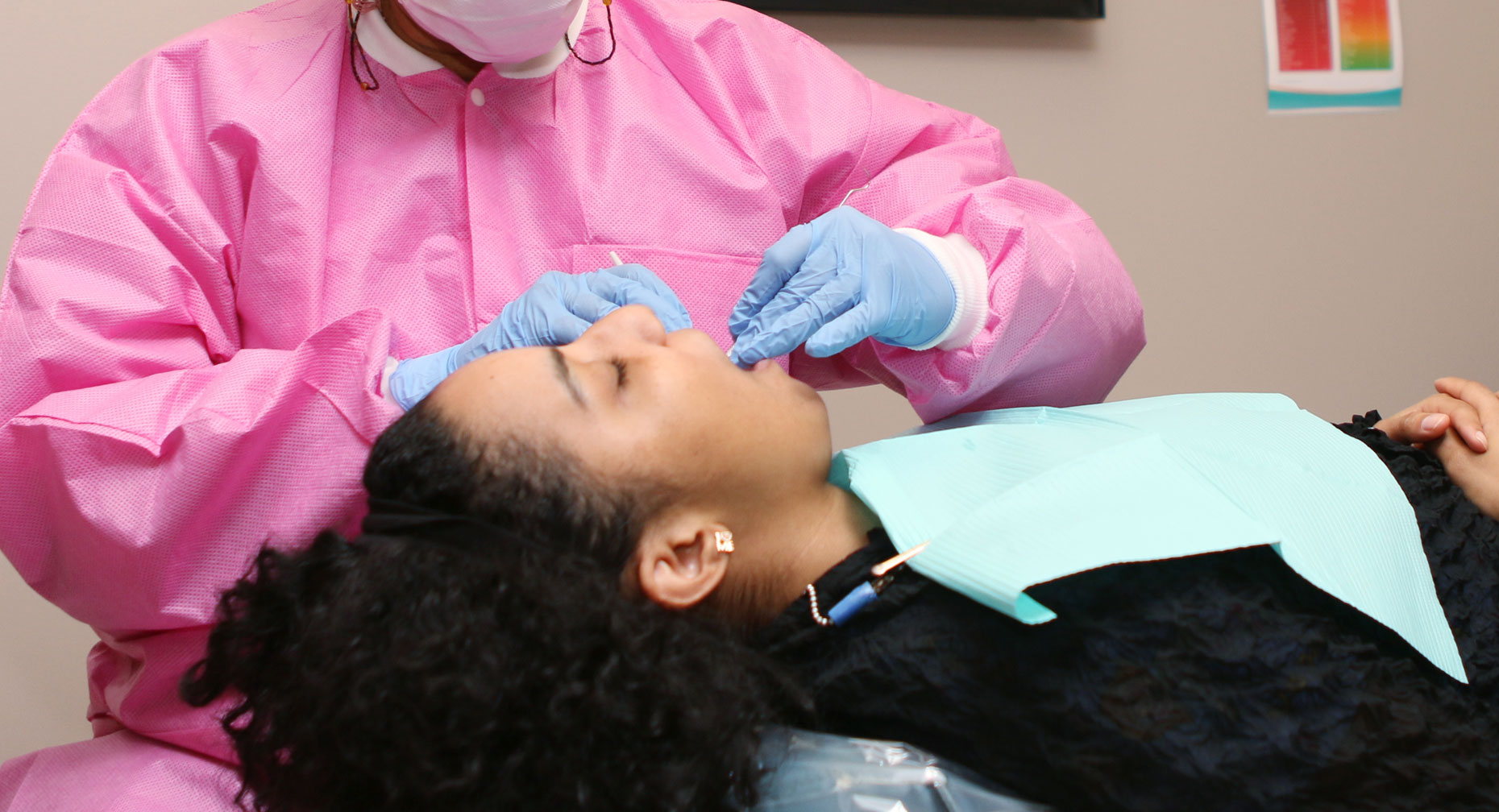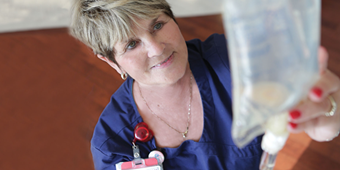Oral Cancer: Common, But Curable

Answer a few questions and we'll provide you with a list of primary care providers that best fit your needs.
The bad news: Oral cancer is common.
The good news: If you have oral cancer and your doctor finds and treats it early, it usually is very curable. Oral cancer can usually be detected by a doctor or dentist in a routine mouth exam. And avoiding smoking and tobacco can go a long way to reducing your risk – as the majority of people who get oral cancer are smokers or tobacco users.
Like other cancers, oral cancer is characterized by cells that begin to change, grow out of control and often clump together into a mass called a tumor. Oral cancers are part of a group of cancers known as head and neck cancers and can occur:
- In the mouth: Including your lips, gums, cheek lining, the floor of your mouth (below your tongue), the front part of your tongue and the roof of your mouth
- In the throat: Including the back of your tongue, the back part of the roof of your mouth (known as the soft palate), the back of your throat and your tonsils
Oral cancer can interfere with eating, talking and even breathing. Each year, between 30,000 and 50,000 Americans are diagnosed with oral cancer, and it claims the lives of some 10,000 people.
But most cases of oral cancer are treatable, and the chances of treating oral cancer successfully are improved with early diagnosis and treatment
What Are the Types of Oral Cancer?

First, it’s important to know that not all tumors in the mouth are cancerous. Some are benign, which means they are not cancer. And some cases are called “precancerous,” which means they may develop into cancer.
Of cancerous oral tumors, more than 90 percent are a type of cancer called squamous cell carcinoma. These cancers arise in the lining of the oral cavity (called the mucosa) and can spread deeper into other nearby parts of the mouth.
Other, less-common oral cancers include those arising in the salivary glands. These are called adenoid cystic carcinoma, mucoepidermoid carcinoma and polymorphous low-grade adenocarcinoma.
Most cases of oral cancer are treatable, and the chances of treating oral cancer successfully are improved with early diagnosis and treatment.
Am I at Risk for Oral Cancer?
Men are two times more likely to get oral cancer than women, and it occurs most often after the age of 40.
Two primary risk factors for developing oral cancer are tobacco use and frequent drinking of alcohol. Most people with oral cancer are tobacco users. Living or working among smokers may also increase risk. Most people with oral cancer are also heavy drinkers (more than 21 alcoholic drinks per week).
If you combine smoking and excessive drinking, you raise your oral cancer risk six times that of people who don’t drink.
Other risk factors for oral cancer include:
- Prolonged sun exposure
- A poor diet low in fruits and vegetables
- Race: The risk for developing oral cancer is higher for African-Americans
- Irritation caused by dentures that don’t fit well
- Taking immunosuppressive drugs
- Lichen planus, a disease affecting cells in the mouth’s lining
- A history of head and neck cancer
- Exposure to radiation
- Infection with human papilloma virus (HPV), a sexually transmitted virus
You can help minimize your risk of developing oral cancer by avoiding tobacco and drinking alcohol in moderation. Other preventive measures include:
- Visiting your dentist annually for a complete oral exam
- Having your dentures evaluated by a dentist at least every five years
- Limiting your sun exposure and wearing lip balm
- Eating healthful foods, including plenty of fruits and vegetables
What Are the Symptoms of Oral Cancer?
While oral cancer symptoms vary, the most common sign is a sore in your mouth that doesn’t heal. Other symptoms include:
- A lump or rough spot in or around your mouth or on the jaw or neck
- Ill-fitting, uncomfortable dentures
- Loose teeth
- Problems with chewing, swallowing or moving your tongue or jaw
- Persistent bad breath
- Unexpected weight loss
- A persistent sore throat, hoarseness or the feeling that something is caught in your throat
How Is Oral Cancer Diagnosed and Treated?
If you are having symptoms that concern you, your dentist or doctor can perform an oral examination and talk with you about your health, your medical history and lifestyle choices that may affect your oral health. If your doctor suspects you have oral cancer, he will order tests to make sure and see if it has spread. These tests can include:
- Biopsy: Taking a sample of the tumor and having it tested for cancer cells
- Mucosal staining: Applying a blue dye to the suspect area to help determine if a biopsy is needed
- Chemiluminescent light: Examining your mouth with a special light
- Imaging tests: Such as x-rays, CT scans and MRI scans
Treatment options can include surgery to remove the tumor (and surrounding tissue) and/or a range of radiation, chemotherapy and other treatment options. If necessary, treatment may also include plastic or reconstructive surgery to help restore your appearance and oral functioning after surgery.
Answer a few questions and we'll provide you with a list of primary care providers that best fit your needs.
Source: Oral Cancer Foundation; American Dental Association; MD Anderson Cancer Center




